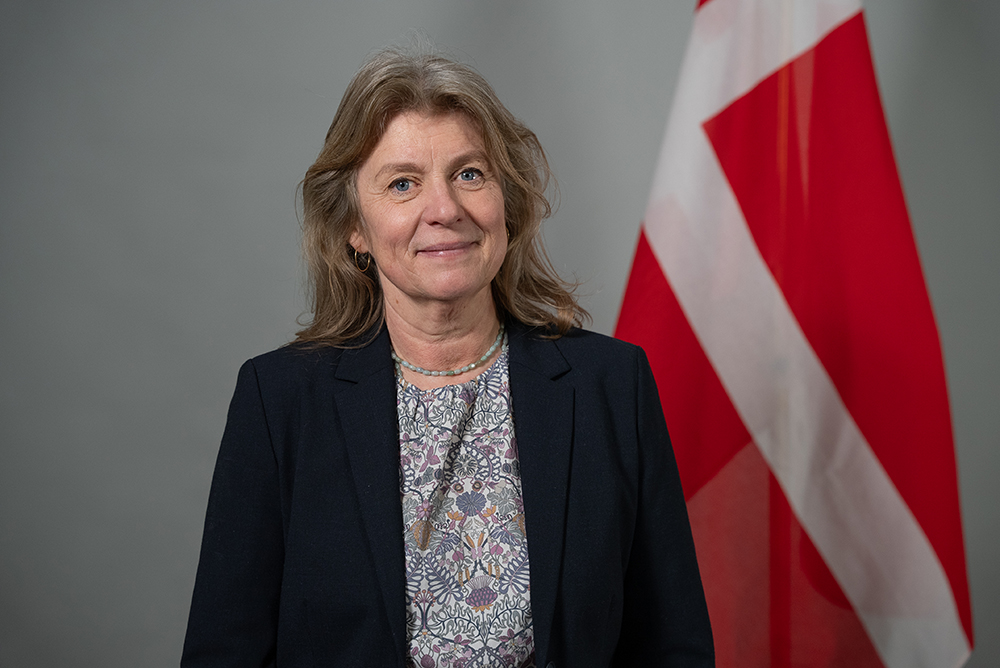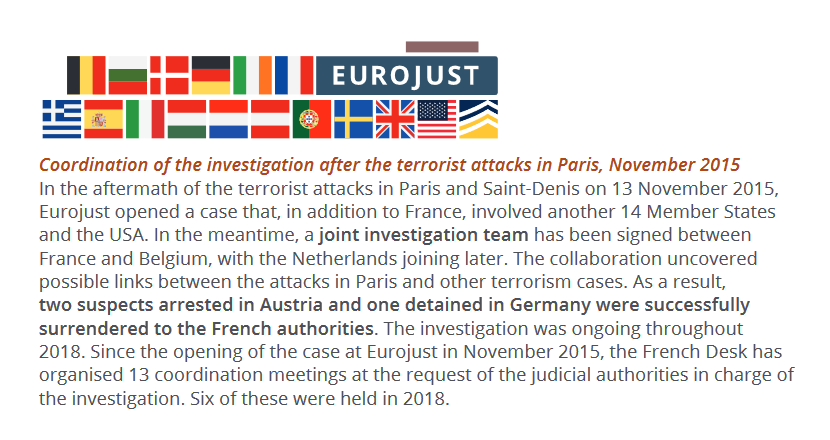
The Danish team is headed by Kirstine Troldborg, who is the Representative for Denmark since February 2025.
In 2025, the Danish team was involved in 86 new cases, 23 coordination meetings and 15 joint investigation teams.

The Danish team is headed by Kirstine Troldborg, who is the Representative for Denmark since February 2025.
In 2025, the Danish team was involved in 86 new cases, 23 coordination meetings and 15 joint investigation teams.

Ms Kirstine Troldborg was appointed Eurojust Representative for Denmark in February 2025. She brings with her over 30 years of experience in the Danish justice system, having held various positions in the Ministry of Justice, the Office of the Director of Public Prosecutions and the judiciary.
Prior to her appointment, Ms Troldborg was Head of International Affairs at the Office of the Director of Public Prosecutions of Denmark, where she was responsible for coordinating international cooperation on criminal matters. While based in Copenhagen, she also served as Denmark’s Deputy Representative at Eurojust for the last five years, with a brief tenure as interim Representative in 2023.
Ms Troldborg’s career in public service started in 1991 when she joined the Ministry of Justice and worked part-time as a public prosecutor. From 1998 until 2004, Ms Troldborg served in the International Office of the Ministry of Justice. Since 2004, Ms Troldborg has been Assistant Deputy Director of Public Prosecutions, apart from 2010 until 2013 when she was an acting judge at the Danish courts.
Ms Troldborg holds a Master’s degree in Law from the University of Copenhagen and has also studied at the National School of Administration (École Nationale d’Administration) in France. In addition to her native Danish, Ms Troldborg is fluent in English and French, and understands Swedish and Norwegian.
Sune Løvtrup is Assistant to the Representative of Denmark.
Protocol 22 of the Lisbon Treaty of 2009 states that EU legislation in the area of freedom, security and justice does not apply to Denmark. Since the entry into force of the Eurojust Regulation in December 2019, Denmark is no longer a member of Eurojust.
The Agreement on Criminal Justice Cooperation concluded between Eurojust and the Kingdom of Denmark (DA) enables the parties to coordinate investigations and prosecutions during cross-border cases. The Agreement takes into account Denmark’s status as an EU Member State and a Schengen Area Country. Under the Agreement, Denmark may second a Representative, a Deputy and an Assistant to Eurojust to coordinate its criminal investigations and prosecutions with other Member States as well as third countries that have a cooperation agreement with Eurojust.
The Agreement provides for quick, safe and efficient exchange of case-related information and evidence between Denmark, other EU Member States and third countries, and contains extensive and robust data protection provisions to guarantee the same level of data protection that is observed throughout the European Union.
Each member of the Danish team is able to attend the Eurojust College meetings in the role of an observer without voting rights, as Denmark is affected by strategic and operational issues discussed in the College of Eurojust affecting all Member States.
Further terms of the agreement are as follows:
2019 | 2020 | 2021 | 2022 | 2023 | 2024 | 2025 | |
|---|---|---|---|---|---|---|---|
New cases (total) | 122 | 130 | 98 | 96 | 110 | 87 | 86 |
Coordination meetings (initiating and/or participating) | 31 | 18 | 7 | 16 | 11 | 23 | 23 |
Coordination centres (organising and/or participating) | - | - | - | 1 | 1 | 2 | 0 |
Joint investigation teams (newly signed and/or ongoing) | 15 | 13 | 8 | 7 | 11 | 17 | 15 |
